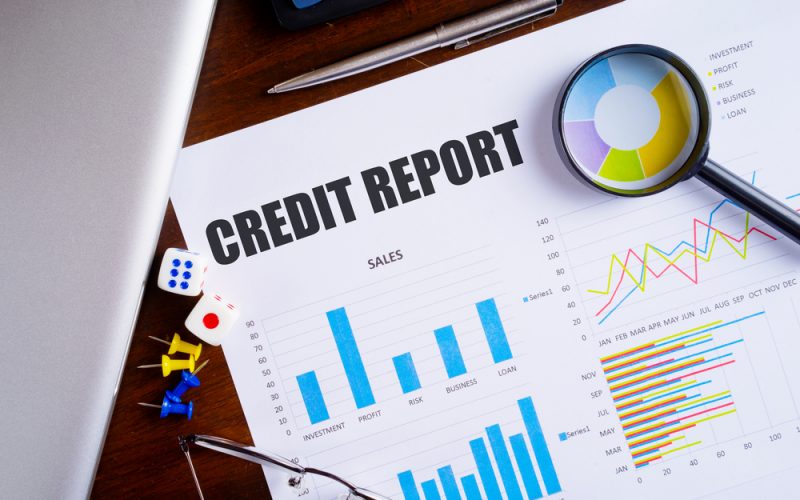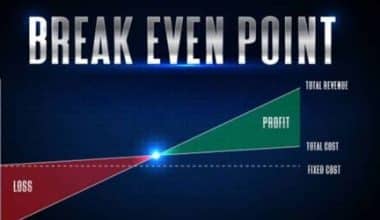Establishing business credit is a major step for small businesses. From startup costs to expansion strategies, establishing a good business credit score can help make your business dreams a reality.
In addition, it can help you get approved for a lease, business loan, or business line of credit, as well as better credit terms from vendors.
More so, building business credit can help you separate your personal finances from your business’s finances.
There are lots of potential benefits of having a good business credit score. But, that’s if you know what it entails.
Find out more about how to establish a good business credit score as you read through this article.
What is a Business Credit?
Just as you build personal credit based on your financial history, you build your business credit based on your business’s financial history.
This means how you manage any credit that’s been extended to your business, including credit cards, lines of credit, trade lines from suppliers, and more.
Just as personal credit is tied to your social security number, business credit is tied to your employer identification number EIN.
More importantly, just as your personal credit history determines if you’re a worthy borrower, your business credit shows investors if your business is worthy of investment or it’s just another bottomless pit.
READ MORE: Business Intelligence Analyst: Job Description, Certifications & Salary In the US
How Does Business Credit Work?
As we’ve established, one of the major differences between business credit and personal credit is that your business credit is tied to your EIN.
This means that as you carry out several financial activities in your business such as opening a bank account, getting a credit card, and paying employees, all this financial information becomes a part of your business credit history.
Your business credit information is collected by three main credit reporting agencies – Dun & Bradstreet (D&B), Experian, and Equifax.
These agencies collect information from vendors and creditors you do business with, as well as from legal filings and public records.
Then, using a credit reporting algorithm, they’d create your business credit in form of a numerical value; your business credit score.
Unlike a personal credit score which is determined by a standard evaluation method, your business credit score will vary from agency to agency, as each agency has its own method of calculating your score.
Conversely, your business credit score depends on the following factors;
- Demography details: Years in business, business size, and industry risk
- Credit: Credit Utilization, Length of credit history, credit mix, payment history, balances, and trends
- Public records: Amounts and frequency associated with bankruptcies, judgments, and liens
In general, your business credit score will range from 1 to 100 with a higher score meaning that your business is trustworthy and you can pay back your loans on time.
As you are trying to build credit, actions like paying back your loans on time, as well as not maximizing your credit limit will be of benefit to your business credit history.
On the flip side, actions such as paying back late, having outstanding balances will be detrimental to your business credit score.
READ MORE: Credit Analysis: Guide to the Process & Ratios of Credit Analysis
How to Build Business Credit
Although it takes time to get business credit, being intentional about your financial activities towards your business will determine what your business credit history will turn out to be.
Follow these steps to build a trustworthy business credit score.
#1. Register Your Business Entity
The first step to building your business credit score is by keeping your personal finance separate from your business finance.
And the first step to do this is by setting up your business as a registered entity. If your business entity is not registered either as a partnership or as a sole proprietorship, it becomes difficult to manage the paperwork.
More so, there’s no legal or financial separation between the owner and the business. In such a case, when you choose to work with a vendor or apply for a loan, you’d have to provide your personal security number.
As a result, your business activity will be reflected in your personal credit report.
To register your business as an entity, you’d have to choose to make it either a;
- C-corporation –A C-corporation gives you and your business the legal and financial separation it needs. More so, it is ideal for a business that intends to issue stock or go public in the future.
- S-corporation –S-corporations are pass-through entities in which business’s profits are only taxed at the individual level.
- Limited liability company (LLC) –An LLC is another type of incorporated business entity with liability protection and financial separation between you and your business. An LLC is easier to manage than a corporation and its tax rules are more flexible.
- Limited liability partnership (LLP) – An LLP is a registered business entity that’s popular among professional industries, such as lawyers and doctors.
If you’re unsure of which structure to use, you may want to consider asking a business accountant for help.
READ MORE: Business Structures: Different Types of Business Structures Explained
#2. Obtain an Employer Identification Number (EIN)
An Employer Identification Number (EIN) is a social security number for a business. It is required to open a business either as a sole proprietor, partnership, corporation, or LLC.
One of the major benefits of an EIN is that it can help you build your business credit. So when you apply for a loan or credit card for your business, you’ll be asked to either provide your Social Security number or EIN on the application.
If you have an EIN, then your business credit will be tied to it, and you can use it to qualify for business financing.
#3. Open a Business Bank account
The next step to building your business credit is by opening a business bank account, different from your personal account.
By opening this account, business credit agencies will be able to easily track the financial activities of your business and report the information in your business credit report.
Also, after opening the account, it’s important you use it for only your business expenses. This expenditure, provided you pay them in full and on time can contribute to building your business credit.
Ultimately, opening a business bank account will not only provide a good bank reference but will pave the way for better credit accounts in the future.
#4. Get a business phone number
Although this may seem very easy, it is a very important step towards building good business credit.
Agencies like Better Business Bureau require businesses to have an address and phone number before they sign up. So, it’s important you have the correct contact information to build business credit.
More so, getting a business phone number will solidify your business’s existence. It’s like establishing your first relationship with a phone company.
READ MORE: Can you Buy a Money Order with a Credit Card? (Pros & Cons)
#5. Open a business credit file
The next step to building your business credit is to open a business credit file. Open a business credit file with all credit agencies to start building your business credit.
#6. Get a Business Credit Card or Line of Credit
Many businesses use their credit lines to finance the operations of their businesses. And this method is very vital in building your business credit.
As a first step, you may want to consider applying for a business credit card to cover your day-to-day purchases for your business. This helps to solidify the separation between your personal and business finances.
Additionally, a business line of credit works like a credit card. The funds are stored in your bank accounts and can be withdrawn on a need-basis.
Also, the act of borrowing and repaying funds on a business credit card will help build your business credit, as long as you pay on time.
#7. Establish Trade Lines WIth Your Suppliers
Establishing trade lines with your suppliers is another method to build your business credit. This means you should maintain and establish good relationships with vendors and suppliers.
Similar to our personal credit, you will build business credit as you work with a variety of suppliers.
As you buy more supplies, inventory, or other materials from third-party vendors, those transactions can become relationships, which will help you build business credit.
The key is to choose suppliers who will report your payments to business credit agencies. Not all vendors do this, so if your supplier doesn’t report to the business credit agency, then your early payments won’t contribute to your business credit.
READ MORE: 4 Cs of Credit: Best 2023 Descriptive Guide (Updated)
#8. Borrow From Lenders That Reports to the Business Credit Agency
If you’re repaying your credit cards, and loans on time and in full, you can put your good behavior to use.
So, try to work with lenders who report to the credit agencies. Ideally, lenders should report to one or more of the three major business credit bureaus – D&B, Experian, or Equifax.
Luckily, this is not an issue with other financial institutions as most banks regularly report borrower’s repayment histories to business credit bureaus.
Some online lenders, however, don’t file reports to business credit bureaus.
So, to ensure that you build business credit from a loan, then, you’ll want to go over a lender’s policy before you apply.
#9. Keep Current Business Information With Bureaus
Each business credit bureau collects information from different sources. On top of this, different suppliers and lenders report different kinds of credit data.
So, because a lender or supplier can pull your business credit report from any of the three bureaus, it’s important that your reports are updated.
Fortunately, these bureaus allow you to update basic information about your business, as well as your financial documents. The more complete and updated your profile is at each of the business credit reporting bureaus, the better.
Also, it’s important that you review your credit reports from each of the different bureaus to ensure there are no errors affecting your business credit score. Even the smallest error can affect your business credit in a huge way.
If you’re not using a good credit monitoring tool, an alternative is to check your business credit report every six months.
In doing so, you may find errors that you’d request to be changed.
#10. Borrow Responsibly
When you want to build business credit, this is a mantra you should abide by – Borrow Responsibly.
When disciplined borrowing habits which is a combination of business credit accounts, and paying back in full, you’ll see your business credit score grow.
Another factor you should put in mind when building your business credit score is your credit utilization ratio. Your credit utilization ratio is determined based on how much credit you have compared to how much you’re using.
Oftentimes, your credit utilization ratio is a major contributor to your business credit score. If your credit utilization ratio is high, then you are seen as a greater risk. So, you should try to keep your credit utilization ratio as low as possible.
READ MORE: Credit Reporting Bureau: What is Credit Reporting Bureau?
Companies That Build Business Credit for You
The following companies help you build business credit ;
Benefits of having a good business credit
The following are the benefits of having a good business credit
- It allows you to obtain better interest rates and credit terms from banks and lenders.
- Reduces the number of times you’ll need to prepay for products or services
- Positions your company for favorable payment terms with new suppliers.
READ MORE: 5 Cs of Credit: Why Are They Important? (+ Detailed Guide for Beginners)
What Is the Minimum Credit Score for Business Loan?
With a score of less than 650, you can secure a loan by demonstrating your ability to repay it. Scores under 650 aren’t the best and may be categorized as average, middling, or even terrible. The minimum CIBIL score needed for business loan applications may possibly be 650 or more, depending on your lender.
Is a Small Business Loan Hard to Get?
The amount of trouble a small business has getting a loan relies on a number of things, including its cash flow, length of operation, credit score, business plan, and targeted loan size. It will be simpler for a small business to obtain a loan the more it can demonstrate that it will be able to pay back the loan.
What Disqualifies You From Getting a Business Loan?
Businesses that are involved in illicit activity, loan packing, speculation, multi-sales distribution, gaming, investment, lending, or when the proprietor is on parole are not eligible.
Can You Get a Business Loan With No Revenue?
Obtaining a traditional business loan is often difficult since many business lenders demand that potential borrowers achieve minimum yearly revenue requirements in order to qualify for a loan. To start-up companies with no present revenue, some lenders willfully offer modest business loans.
Can a Brand New Business Get a Loan?
Startups face greater obstacles than more established companies, yet it is still possible to obtain a business loan. By selecting the most competitive loan choices, learning about their credit scores, and selecting the appropriate form of financing, new business owners can increase their chances of being approved.
Does an LLC Loan Affect Credit Score?
Your credit report may still suffer even if the LLC makes the agreed-upon loan payments, particularly if the loan is a larger one.
What Kind of Loans Can I Get with My LLC?
Through TD Bank, business owners can apply for conventional term loans and lines of credit, loans from the U.S. Small Business Administration (SBA), as well as other products like credit cards and checking accounts.
Bottom Line
I hope these tips help you to build good business credit. If you have any suggestions or questions, kindly let me know in the comments section.
Good luck!






